Refundable cans and bottle fee aims to boost recycling
- Published
- comments
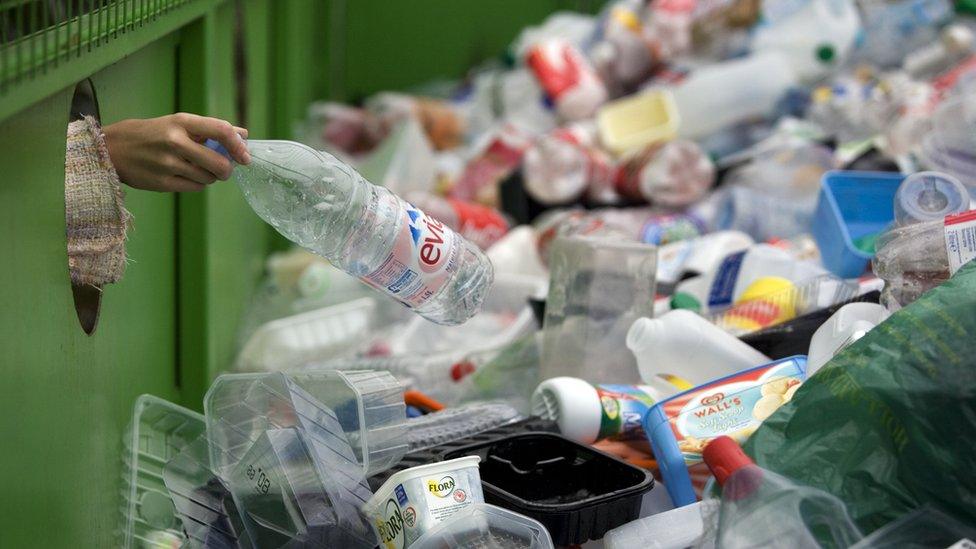
Customers can return drinks bottles and cans and get the fee returned to them
A refundable fee will be added to drinks bottles and cans to boost Wales' recycling rate.
The Deposit Return Scheme will launch in Wales in 2025, alongside schemes in England and Northern Ireland, and will see customers get their money back when they return empty containers.
Wales is ranked third in the world for its recycling rates, according to the Welsh government.
It has now set a target of reaching a recycling rate of 100% by 2050.
Climate Change Minister Julie James said the scheme was another step in moving toward a "more circular economy where less waste is generated".
Similar Deposit Return Schemes (DRS) have achieved recycling rates of more than 90% in countries like Norway, Germany and Finland.
The programme will mean people can buy a drink in Bangor, Gwynedd, and return it in Bristol or Belfast.
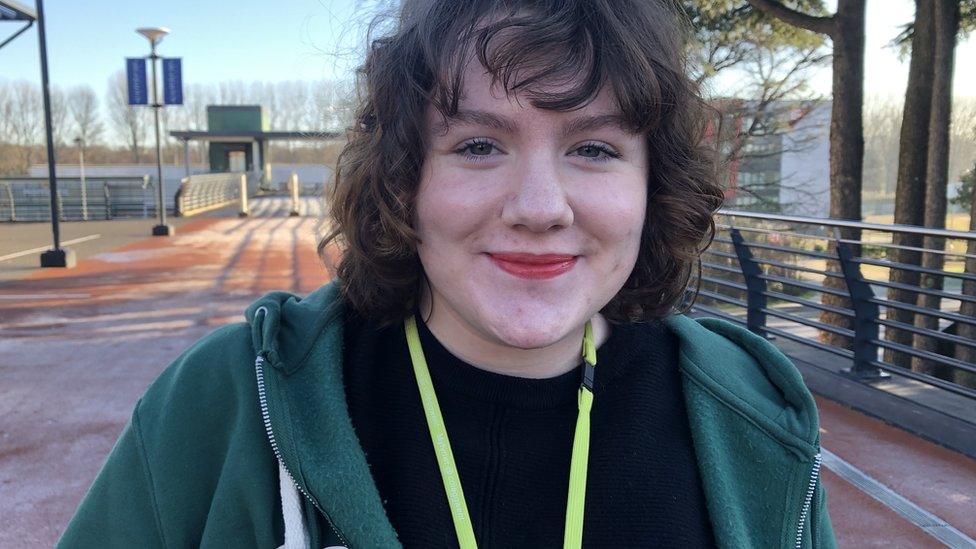
India, 17, thinks it's a good idea as it encourages people to not waste plastic
Scotland will launch its own scheme later this year where a 20p refundable rate will be added to all drinks containers.
The Welsh government said it has yet to decide how much it will charge, but it expects the amount to vary depending on the size of the item and its material.
Retailers will be responsible for deciding how they operate their return point, choosing to either have a reverse vending machine or manual take-back service.
Drinks containers made from plastic, glass, steel and aluminium will all be included in the scheme.
The Welsh government also hopes to introduce a digital deposit return scheme at a later date, a pilot of which ran in Conwy in 2020.
Angela Smithey, 49, from Pontypool, Torfaen, said she thought the scheme was a good idea, but thought it could be more effective.
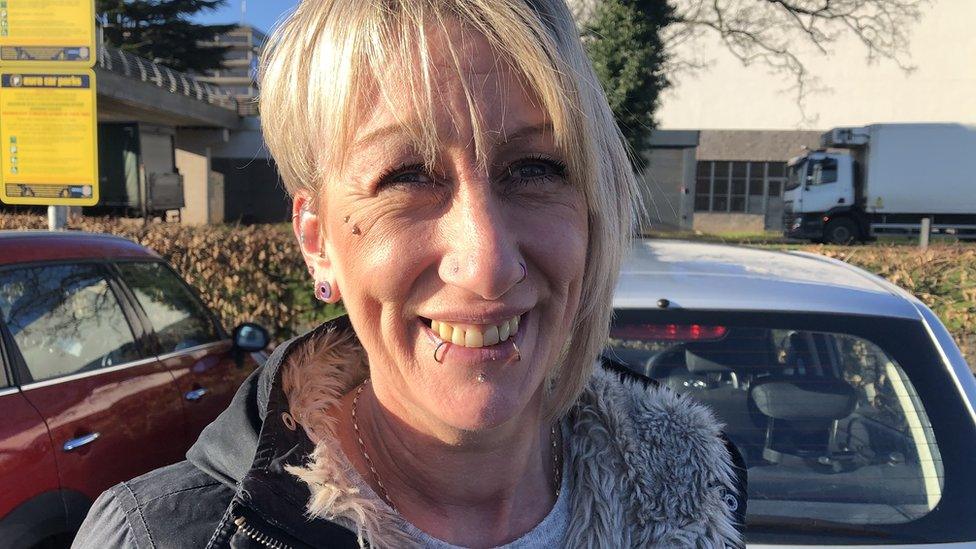
Angela Smithey backs the idea, but she has reservations
"I personally think it would be easier to recycle at home on our own and we don't have to travel somewhere to get our money back," added Ms Smithey.
Speaking to BBC Radio Wales Breakfast, Tim Gent, manager director of the recycling company Recresco, said he "can't really see why we would do it".
"In Wales we have the third best glass recycling rate in the world as the system we're already using."
"It seems to me the proposal is to continue to send the truck round collecting recycling as usual but now it's only going to collect half of it."
By driving to the reverse vending machines, he said, people will do "more damage to the environment than the recycling they've saved from landfill".
Dean Matthews, from Cwmbran, Torfaen, said he thought the scheme might be more effective with younger people, who "you see drinking bottles and cans about the town".
"I would just put it in my recycling bin at home. It does remind me though of the old pop bottles and going behind the off-license back in the day and taking them to get some money for them," added the 56-year-old.
Remember getting money back on your empties?
India, 17, said: "I think it's a good idea because it encourages people not to waste plastic. Even if you put it in a recycling bin, there's no guarantee it'll stay there because it could blow away.
"I'm not sure if everybody will bother to get some money back, but I would."
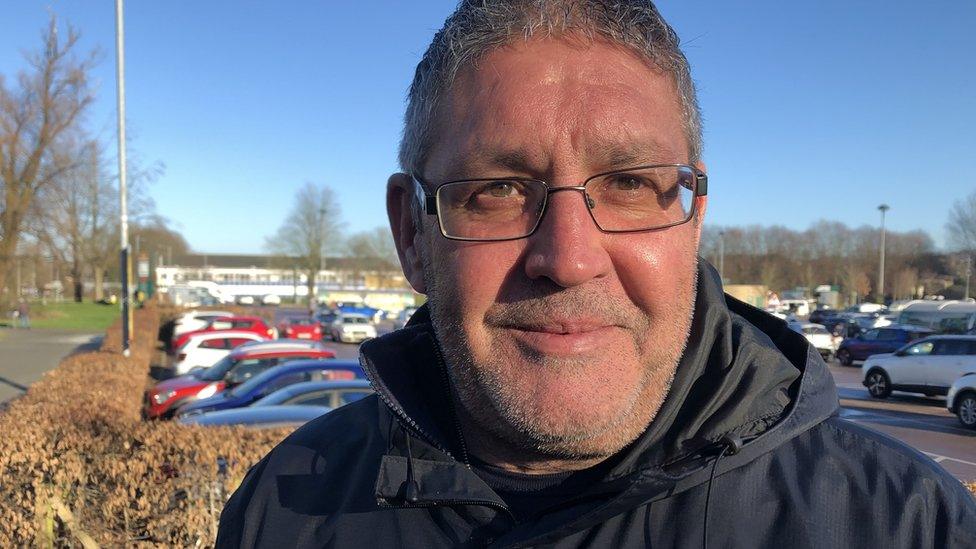
Dean Matthews says the scheme reminds him of getting money for old pop bottles around the back of off-licences
Owen Derbyshire, chief executive of Keep Wales Tidy, said: "Based on the success of similar initiatives around the world, we believe adding a value to recyclables will have a significant impact on recycling rates and quality, reduce litter and improve the quality of our local environment.
"We're delighted Welsh government has committed to a comprehensive scheme that includes glass. It is another important step towards transforming the way we consume resources and reduce waste as a nation.
The British Soft Drinks Association said: "Whilst this is an environmental scheme, it needs to be treated as more than just an anti-littering initiative if we are to unlock its true potential.
"If designed properly, the DRS can successfully kickstart the UK's circular economy for packaging, giving producers access to high quality recycled materials and creating vital investment in UK recycling facilities."

WILD MOUNTAINS OF SNOWDONIA: Five farming families open their gates and share their lives
IOLO: A WILD LIFE: Iolo delves into the archives from the past 25 years

Related topics
- Published7 December 2020
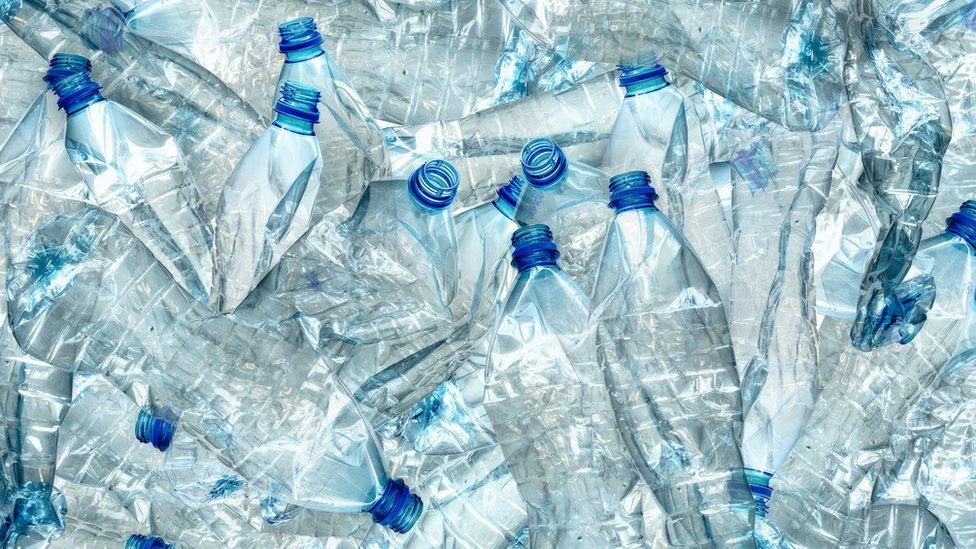
- Published2 March 2020
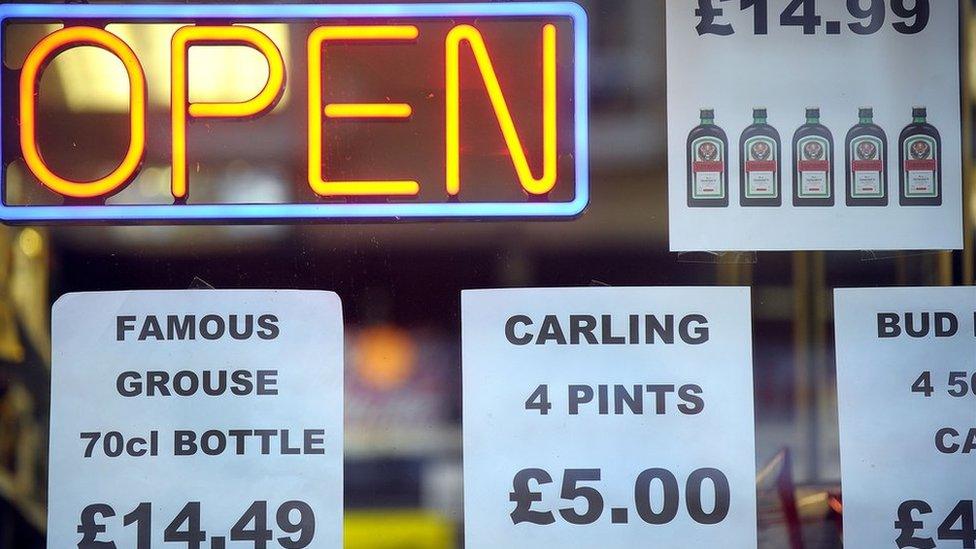
- Published2 March 2020
